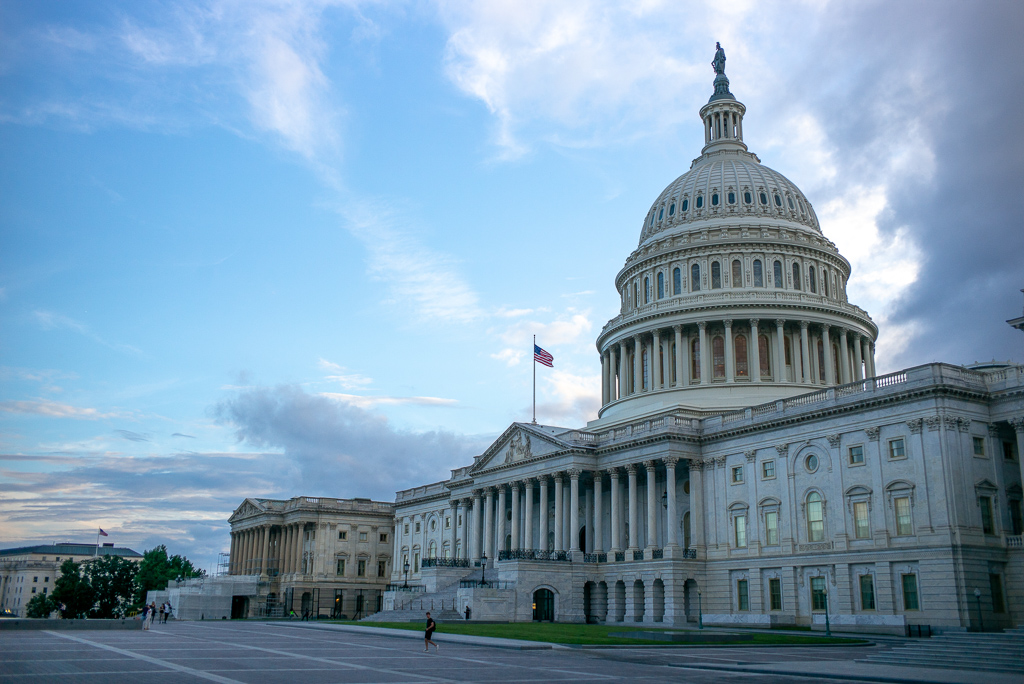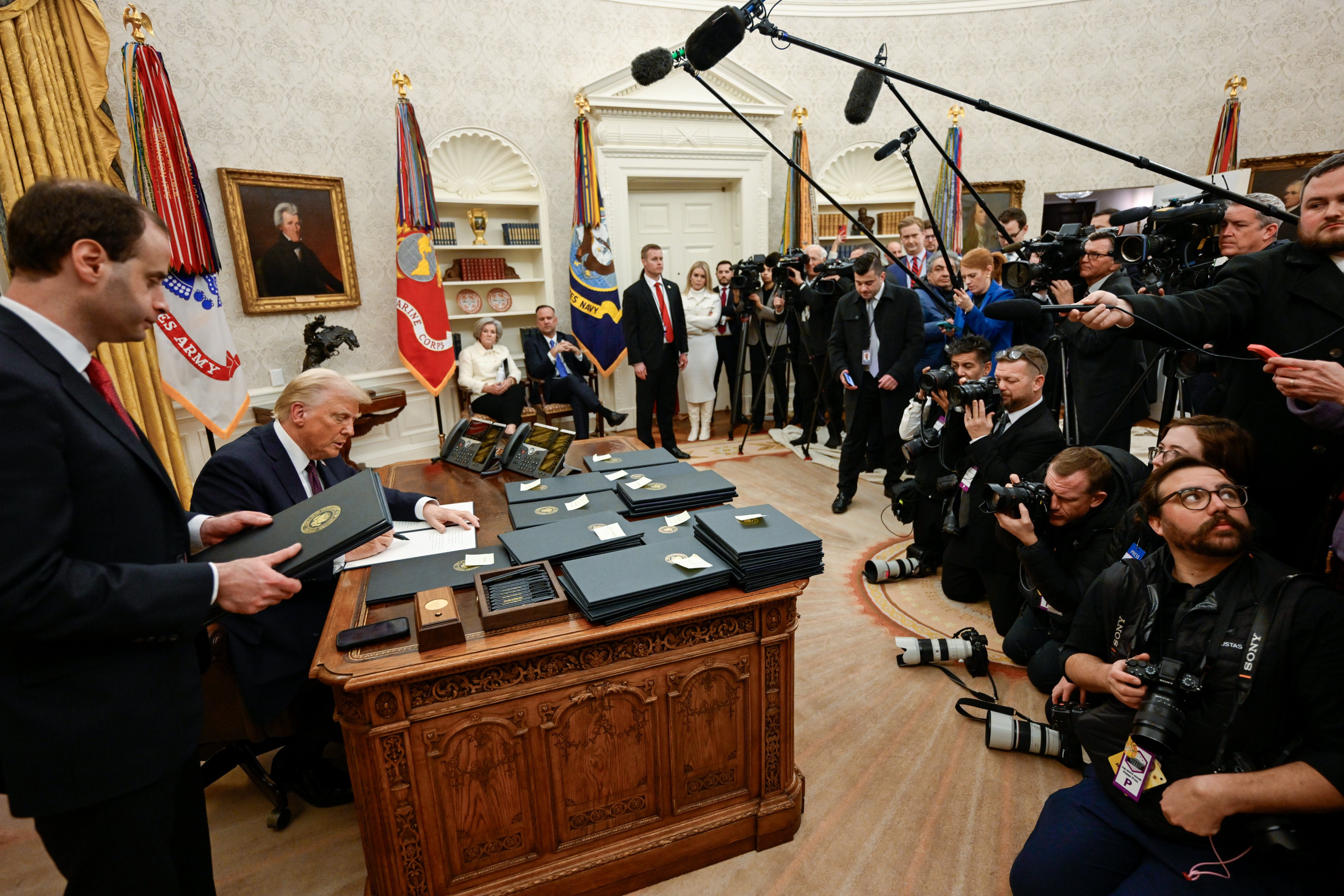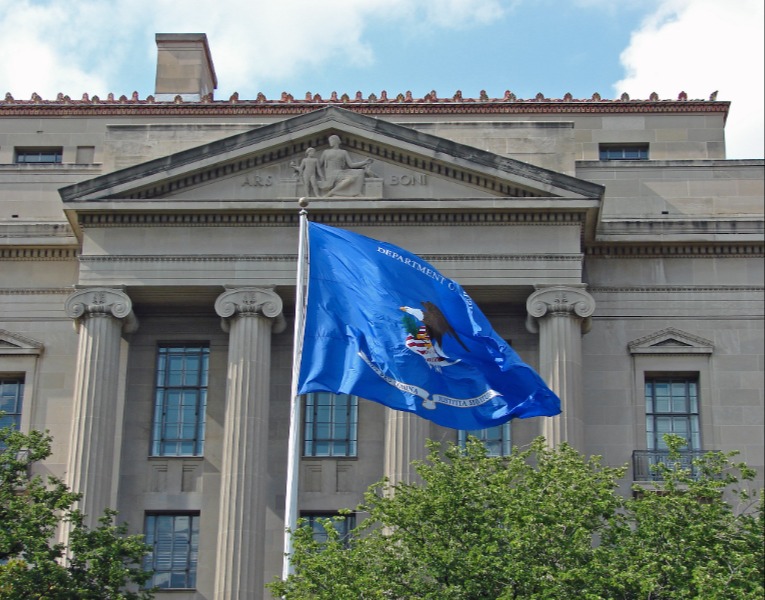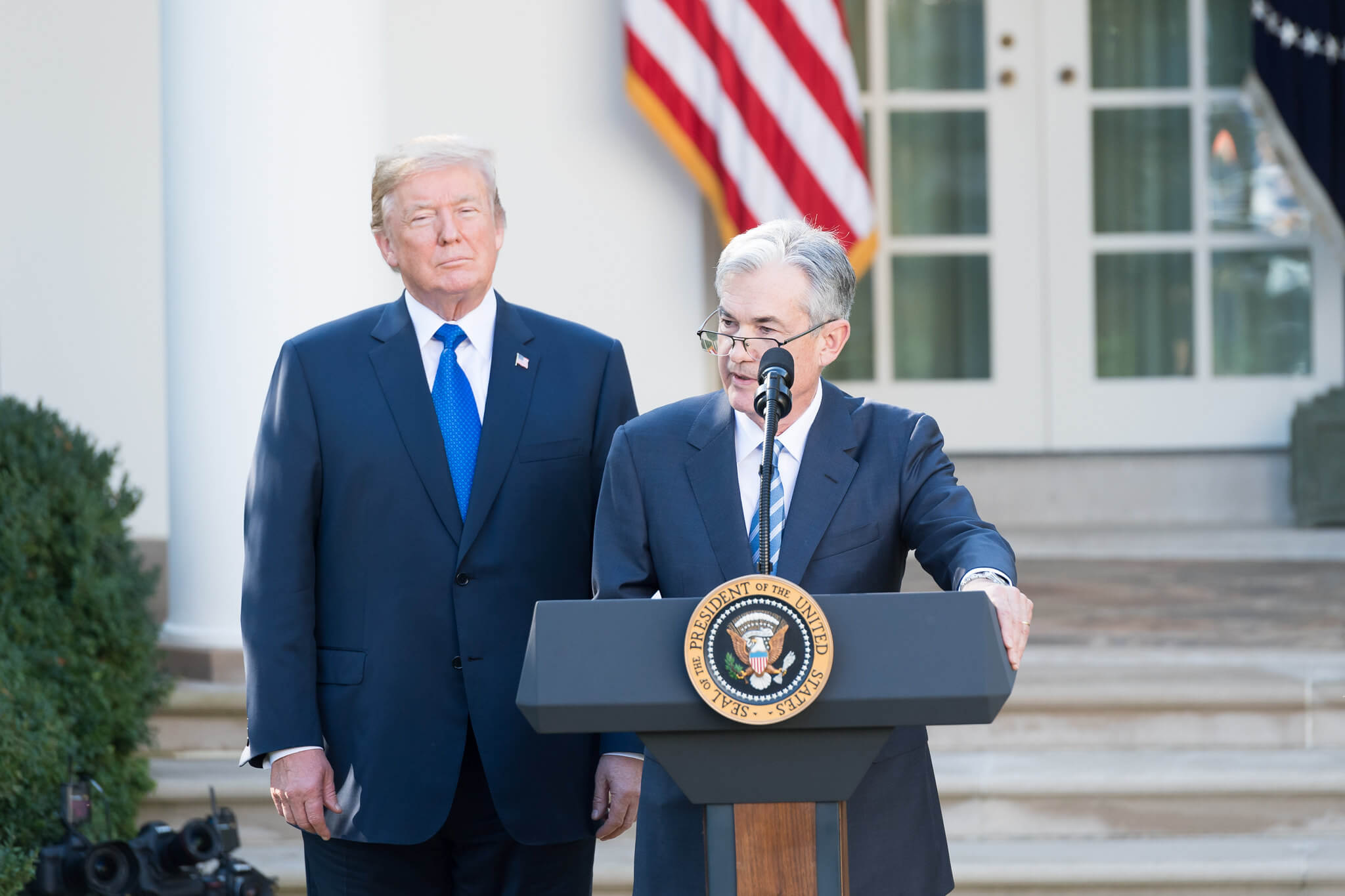How the New Congress Can Restore Its Constitutional Role
On Jan. 3, Democrats took control of the committee gavels in the House of Representatives, marking a significant shift in the dynamics of the politics of foreign policymaking and possibly the substance of policy as well. While it is tempting to view this change of power merely the next installment of a partisan political saga, the stakes are in fact higher. The new Congress has a constitutional duty to serve as an appropriate check on the president, consistent with the separation of powers laid out in the United States Constitution, in order to prevent the abuse of power.

Published by The Lawfare Institute
in Cooperation With

On Jan. 3, Democrats took control of the committee gavels in the House of Representatives, marking a significant shift in the dynamics of the politics of foreign policymaking and possibly the substance of policy as well. While it is tempting to view this change of power merely the next installment of a partisan political saga, the stakes are in fact higher. The new Congress has a constitutional duty to serve as an appropriate check on the president, consistent with the separation of powers laid out in the United States Constitution, in order to prevent the abuse of power. All members of Congress take an oath to support and defend the Constitution of the United States. Yet the Republican House majority had been reluctant to assert this power. In fulfillment of the oath of office, the new Congress should dust off its constitutional powers, exercise the prerogatives of the legislative branch and serve as appropriate check on the president.
The first criterion by which to evaluate whether House Democrats are asserting congressional prerogatives is their effectiveness in pursuing an appropriate oversight agenda. Of course, the work of the new Congress in asserting its prerogatives could be obscured if the partial government shutdown over President Trump’s desire to build a border wall is not resolved for a lengthy period of time. It could also be obscured, potentially for months, if early in the year Special Counsel Robert Mueller—or other law enforcement jurisdictions looking at potentially criminal activities of the president, the Trump Organization, the Donald J. Trump Foundation or the Trump family members—issues reports, makes filings, or otherwise makes further findings that are the impetus for impeachment proceedings. Impeachment is ultimately a political question, not a legal one, and both incoming Speaker of the House Nancy Pelosi and incoming Chairman of the Judiciary Committee Jerrold Nadler have made clear that they will wait until Mueller has concluded his activities before making a decision on whether to pursue impeachment.
Alongside the Mueller probe, there are also numerous Russia-related investigations that could take place. Indeed, new House intelligence committee chairman Adam Schiff has already promised to reopen that committee’s probe. But while L’Affaire Russe will likely eat up some congressional energy, the range of potential investigations for the new Congress goes well beyond Moscow. Myriad important national security and foreign policy issues have been effectively ignored by Congress over the last two years and are ripe for oversight.
Without naming all potential areas for inquiry, the possibilities include: (1) the administration’s policy toward, and Trump’s financial interests in, various authoritarians and dictators around the world; (2) the administration’s policy toward, and Trump’s treatment of, democratic allies; (3) the administration’s Syria, Saudi Arabia, Afghanistan, Iran, North Korea and China policies; (4) the state of the workforce at foreign policy and national security agencies, especially the State Department, as well as foreign aid policies and plans; (5) the outcomes of the administration’s changes to Obama-era counterterrorism policies; (6) the administration’s cybersecurity policy and steps to defend against information warfare by foreign adversaries; (7) the administration’s southern border policies and actions and policy toward Central America; (8) the administration’s push for more nuclear weapons and the path forward with respect to arms control treaties; (9) the state of the United States’ human rights and democracy agenda; (10) the administration’s policy toward Israel and prospects for a two-state solution; and (11) the consequences of America’s withdrawal from the Paris Climate Accord and the administration’s climate agenda.
With so many issues on the table, it will be difficult to give each topic the time and attention it deserves. Committee chairs will have to find creative ways to pursue as many as possible while avoiding a scattershot approach that prevents coherent themes, alternative approaches and valuable lessons from emerging from their oversight efforts. In part, this means that House Democratic chairs of the national security and foreign policy committees will need to decide which oversight issues they will tackle and in what order. Their resources will be small, and their challenges will be many—including a Republican-led Senate that will likely serve as a damper on their efforts. They will need to come up with processes that allow them effectively to: prioritize efforts for maximum impact, coordinate efficiently on oversight of issues that cut across multiple committees, elevate and reinforce common themes that it is important for Americans to understand and absorb, and blunt partisan attacks from the Senate and White House that seek to paint legitimate oversight efforts as mere partisan obstruction.
Whether Democrats are successful in achieving these process goals will depend, in part, on the ability of Pelosi, Majority Whip Steny Hoyer, the chairs of the relevant national security committees and their staff covering national security issues to corral and coordinate their members. The difficulty of these challenges cannot be overstated. The House consists of 435 separate fiefdoms, each with their own bosses and their own ways of prioritizing and functioning.
Chairs will soon face the question of what to do if—or, more likely, when—the administration resists congressional calls to make documents available and provide government witnesses to testify. Getting high-level administration witnesses can be difficult even under same-party control of government, and there is no question that the Trump administration will be hostile toward Democratic House oversight. House Democratic Chairs will have subpoena power, which helps. Even before they reach that point, however, House Democrats will need to keep a close eye on whether and how Republican members supportive of the administration coordinate to trap chairs into burning time and energy in fruitless efforts toward bipartisanship before using subpoenas and other concrete tools.
This question of how and whether and when to seek bipartisan consensus will be a fundamental one for the national security chairs. The answer will vary by committee, depending on committee traditions as well as the personalities involved. While it is almost always good practice to ask the other side to join in an oversight letter or coordinate on a hearing topic, there is always a risk that such efforts will give political opponents an opportunity to stymie a legitimate and appropriate oversight agenda that is consistent with the Madisonian conception of separation of powers under the U.S. Constitution.
Finally, all this will be taking place in the shadow of the 2020 elections. If House Republicans think that they have a good chance of retaking their majority, they will have an incentive to wait out their time in the minority rather than cooperate with Democrats. Further complicating this picture is the reality that at least six senators on the other side of the capitol will likely begin running for president soon. The positions taken by Democratic candidates in the primaries—and then by the Democratic standard-bearer in the general election—will increasingly shape and constrain what Democrats in Congress can do, both in terms of supporting presidential candidates as well as defending against the charges, inevitable in a general election, that Democrats are weak or incompetent on national security matters. And the prospect of a Democratic president succeeding Trump could very well turn on how voters feel about the performance of Democrats in the House majority.
***
Michael Gerson recently wrote that “[t]he separation of powers does not work automatically, like a washing machine.” Ultimately, preserving the appropriate balance of power between the legislative and executive branches requires the initiative of individual members of Congress making individual decisions about what they will do and what they will advocate for and support. In this vein, below I offer a brief overview of what we might expect from three of the relevant committee Chairs and the challenges they may face.
House Permanent Select Committee on Intelligence
Rep. Adam Schiff’s (D-Calif.) work as chairman of the House Permanent Select Committee on Intelligence will be front and center in the 116th Congress. His tenure follows Devin Nunes’s (R-Calif.) handling of that committee’s Russia investigation in the last Congress (which seemed aimed primarily at shielding Trump and his campaign from accountability). Schiff has made it clear that he views it as his duty to tell the American people, in an open and public-facing way, exactly what happened in the 2016 election. Until Mueller’s investigation concludes, however, Schiff will face the particular challenge of de-conflicting his efforts with Mueller’s ongoing work. Depending on what information Mueller produces and in what form, Schiff's best-laid plans for committee work could be upended when Mueller concludes. For example, if there is a sense that Mueller’s work was cut short for some reason or was otherwise incomplete, Schiff (presumably in conjunction with Chairman Nadler of the Judiciary Committee) may need to add to his agenda an investigation-of-the-Mueller-investigation. It is also unclear how Schiff will navigate a path that does not deflate the bipartisan Senate investigation headed by returning Chairman Richard Burr (R-N.C.) and returning Vice Chair Mark Warner (D-Va.)—a partnership marked by significantly more cooperation and comity than that of their House counterparts.
My colleagues Benjamin Wittes and Susan Hennessey sat down with Schiff on the Lawfare Podcast a few weeks ago for a wide-ranging discussion of the committee’s upcoming work. In addition to bread-and-butter committee tasks, like traditional oversight of the intelligence agencies and work on an intelligence authorization bill, Schiff has indicated that he will seek to address wider issues—including the intersection between the president’s foreign policies and the Trump family’s financial interests globally.
Schiff could play an unusual role, not usually filled by the chair of the House intelligence committee, in dealing with broader governance and foreign policy issues. His already-high profile on Russia issues, combined with the investigative powers he will have as chair and his willingness to hold public hearings, could mean he becomes the go-to articulator of the importance of core American values like the rule of law, election integrity, respect for human rights and anti-corruption as well as broader foreign policy challenges like the rise of authoritarianism around the world. Such a role would be unprecedented for the House intelligence chairman, who traditionally focuses on more mundane agency oversight topics in closed settings.
Finally, as part of prioritizing his efforts, Schiff will need to decide how to handle the clear preference of both the president and congressional Republicans to divert attention away from the Russia investigation (and other uncomfortable topics) and toward other issues. His difficulties will be magnified by the fact that some of the issues with which Republicans will seek to sideline him are, in fact, legitimate—such as the threat posed by China’s economic espionage and long-term influence campaigns in the West. These issues are worthy of the committee’s attention, and Schiff could shine light on whether Trump’s various statements and policies toward China are helping to mitigate or else exacerbating these threats. In addition, as part of efforts to examine the potential connection between president’s foreign policies and the Trump family’s financial interests globally, Schiff could look closely at China’s approvals of dozens of Trump family patents over the last two years. These approvals are covered periodically by the press and are whispered about on Capitol Hill, but until now no one has had both the tools and the political will to see if a straight line of graft can be drawn.
Foreign Affairs Committees
Representative Eliot Engel (D-N.Y.) will chair the House Foreign Affairs Committee, where he has a host of potential oversight issues from which to choose—from the political targeting of career civil and foreign service officers and attempts to gut the resources of the State Department and USAID, to the policy formation and implementation process associated with opaque administration decision-making related to the United States’ policies toward Russia, Syria, North Korea, Iran, China, nuclear weapons proliferation, counter-terrorism, human rights and climate change. More broadly, the committee could use its expansive jurisdiction to look at the impact of President Trump and his administration on the basic mechanics of the United States’ post-World-War-II foreign policy: the alienation of allies and partners, the fate of values-based U.S. diplomacy and oversight of whether the President’s foreign policy decisions are motivated by what is good for the United States or what is good personally for Trump and his children. His Republican ranking member, Michael McCaul (R-Tex.), is new to his leadership role but is expected to be fairly principled and bipartisan in his approach. Engel has indicated publicly that he expects to try to revise the post-9/11 war powers, but it is doubtful anything could pass the Senate. Engel could, however, use such a process to get more visibility into the administration’s counter-terrorism efforts and outcomes.
Engel may have a relatively inactive counterpart on the Senate side in Senator Jim Risch (R-Idaho), who is expected to chair the Senate Foreign Relations Committee. Risch has been a reliable supporter of President Trump’s policies and, so far, has not shown much inclination to confront the president.
Armed Services Committees
Rep. Adam Smith (D-Wash.) will chair the House Armed Services Committee and has said publicly that he wants to energize the committee’s oversight role. Smith will need to address the thorny issue of the continued presence of U.S. military on the southern border with Mexico following the Nov. 2018 mobilization. More generally, Smith will also need to grapple with uncertainty over the size of the defense budget in future years, an issue that has become higher-profile thanks to a Dec. 3 tweet by the president that the size of the Defense budget is “[c]razy”—along with his later apparent promise to increase the Defense budget. There is certainly some worthwhile work to be done examining the U.S. military’s sprawling worldwide presence as well as the breadth of its mission, which has expanded dramatically over the years as policymakers on Capitol Hill and in the White House have asked the Defense Department to address all manner of transnational threats.
The traditionally bipartisan work of the committee on the annual National Defense Authorization legislation is expected to continue in good order but in a potentially more slimmed-down fashion. With a fairly moderate committee membership, a progressive House Democratic caucus and a Republican-controlled Senate and White House, Smith will likely need to concentrate on issues and policies that can achieve a broad consensus.
Finally, it remains to be seen how Sen. Jim Inhofe’s (R-Okla.) chairmanship of the Senate Armed Service Committee will shift the focus on the Senate side. The recently deceased Sen. John McCain, who chaired the committee in the previous Congress, was a tour de force who relentlessly pursued his own unique oversight vision. Inhofe is more low-key and supportive of Trump, and as such may focus principally on confirming whoever is nominated as the next Secretary of Defense and passing whatever legislative priorities that person requests. It will be interesting to watch whether Inhofe’s interest in Africa persists in his new role; he has, in the past, focused attention on Africa and the United States Africa Command (AFRICOM). If that interest persists, it could shine a welcome light on a part of the world that often gets overlooked by Congress.
***
House Democratic leadership and chairs have their work cut out for them in the 116th Congress. And if their plates were not full enough already, it is worth remembering the importance of keeping an eye on the future; leadership and chairs on both sides of Capitol Hill must consider how to organize their work in a way that will allow them to quickly and effectively assist the next U.S. president, regardless of party, in repairing the damage done by the Trump administration—both internationally and within the national security and foreign policy agencies of the executive branch. This challenge would be daunting under any circumstances but it may prove particularly difficult given the classified work done by many of these committees, where there is no way to keep a public record. Nevertheless, this will be an important piece of the puzzle if Congress is to reassert its place in the constitutional framework as a co-equal branch of government.





